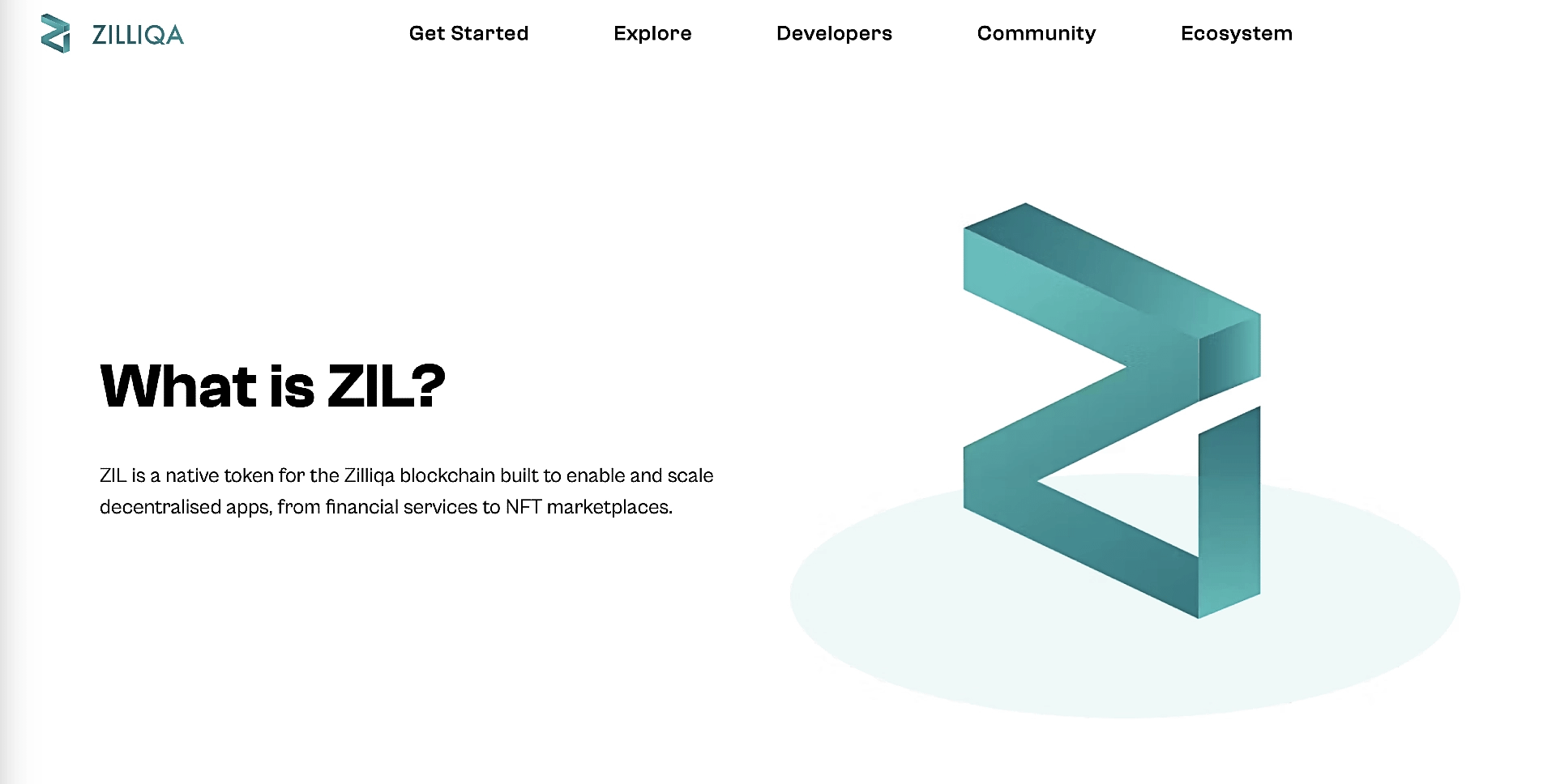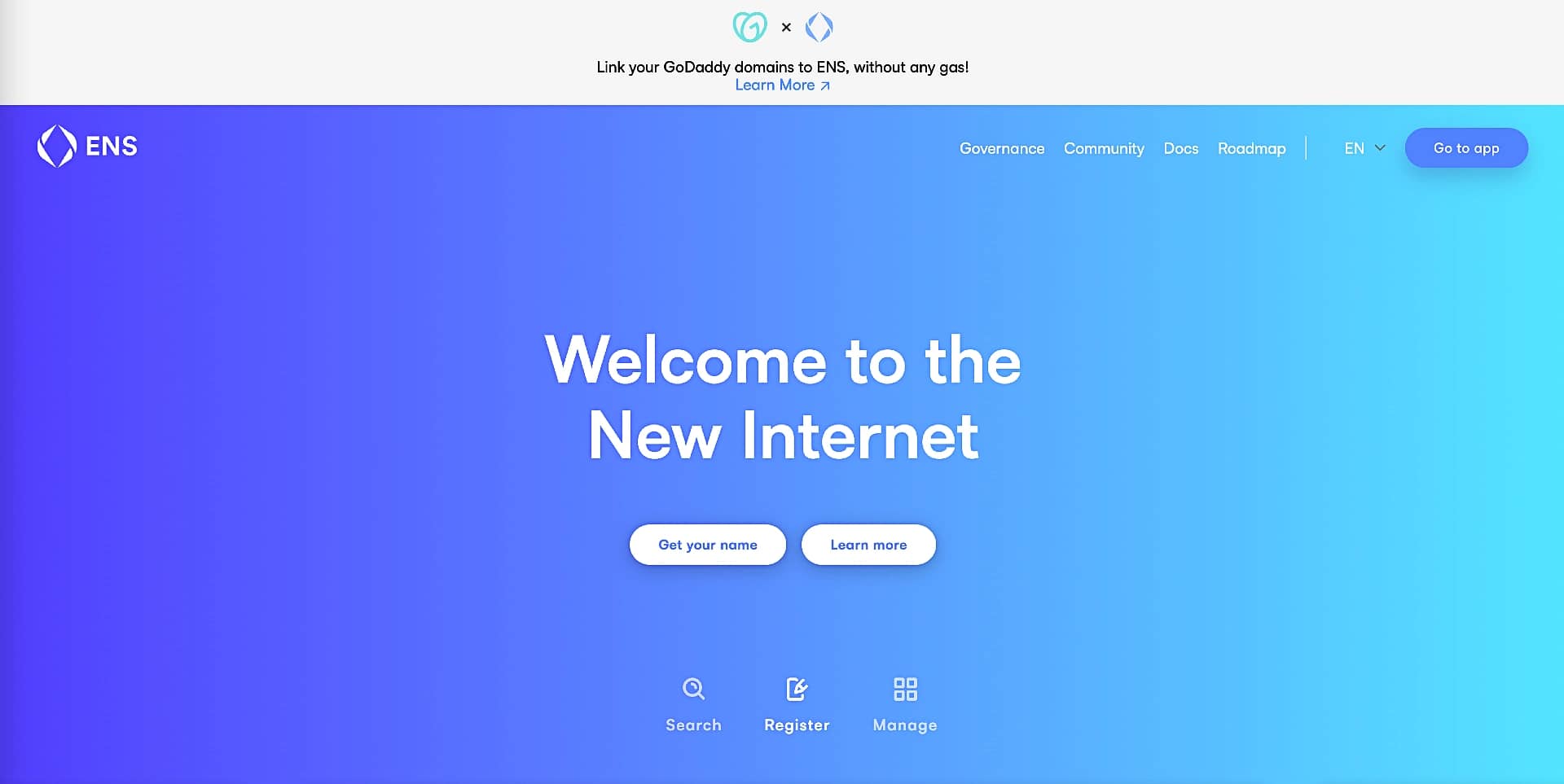There’s no denying that blockchain domains are an exciting new development in the digital space.
They operate on decentralized networks that aren’t controlled by central authorities, they give you complete ownership and control, and they have more robust security compared to the conventional domains we’re used to.
These are just some of the reasons why blockchain technology has the power to change the way we interact with domains, and below, we’ll discuss these points even further by specifically covering the following:
- What are blockchain domains?
- Key features of blockchain domains
- Popular domain extensions
- Security and regulatory aspects of blockchain domains
- Technical requirements and accessibility for using blockchain domains
- Limitations of blockchain domains
By the end of this article, you should have a clear understanding of these domains and whether or not they could be a good option for you and your needs.
Let’s begin.
What are #blockchain #domains 🌐⛓️ and how do they work? 🤔
What are blockchain domains?
Before we dive into giving a definition, we must first backtrack a bit and talk about conventional domains.
So, we know that regular domains are the addresses we put into our web browsers to help us reach certain websites. For example, our domain is “www.domainwheel.com.”
When you type this domain name into your web browser, your computer will check its local Domain Name System (DNS) resolver to see if it knows it, or the resolver will send a query to help you connect to an IP address and reach the target website. That’s what’s happening on the backend.
In addition, ICANN (The Internet Corporation for Assigned Name and Numbers) is the body that regulates conventional domain registrations. This means managing DNS, the allocation of IP address space, and more areas. This body helps to ensure that conventional domains stay in a centralized DNS server.
For many years, we could only purchase domain names through registrars (or resellers), and this process would directly or indirectly be under the authority of ICANN.
Blockchain domains have changed how things work. For starters, each one is connected to a crypto wallet address instead of an IP address, so they’re not beholden to ICANN. Instead, blockchain domains operate on decentralized networks where, as individuals, we can directly manage our domains. This streamlines the registration process and virtually eliminates the risk of domain hijacking.
For the end user, blockchain domains function similarly to regular domains – they type the domain in and get directed to the website. For domain administrators, however, there are several key differences, which we’ll discuss in the rest of this article.
Blockchain domains vs traditional domains: side-by-side comparison
Here’s a quick breakdown of the differences between blockchain domains and traditional domains:
| Feature | Traditional domains | Blockchain domains |
| Centralization | Controlled by central authorities, typically domain registrars and DNS providers. | Decentralized, operating on blockchain networks without a central authority. |
| Ownership/Control | Ownership relies on third-party registrars, with limited control for domain holders. | Users have direct and complete ownership control through blockchain smart contracts [1]. |
| Transferability | Transfers are facilitated through registrars. | Direct domain transferability facilitated by blockchain smart contracts. |
| Payment methods | Typically limited payment options with reliance on traditional currencies. | Accepts various cryptocurrencies as payment, offering a broader range of payment methods. |
| Security | Vulnerable to domain hijacking, phishing attacks, and centralized points of failure. | Enhanced security. |
| Overall autonomy | Relatively lower autonomy for domain holders, dependent on third-party services. | High level of autonomy, with users having direct control over their digital identities and assets. |
Key features of blockchain domains
Above, we compared the key differences between blockchain and conventional domains.
Now, let’s take a closer look at some of the main components that make blockchain domains one of the most exciting developments of the past few years.
1. Decentralization ⚡
Unlike traditional domains, which depend on central authorities like registrars and DNS providers, blockchain domains function on networks without a central authority.
This means there’s no single entity controlling the domain name system (DNS) or assigning domain names. Instead, domain name management is spread across many nodes [2] or computers in the network.
This approach is good for multiple reasons:
Enhanced security
With conventional domains, if the central authority’s security is breached, it can cause widespread vulnerabilities. Blockchain domains distribute control across the network, making it harder for hackers to succeed in their attempts.
More control
As the owner of a blockchain domain, you’ll have direct control over your domain’s registration. This means you won’t need registrars and you can manage and transfer your domains directly without depending on external services.
Censorship resistance
Decentralization helps blockchain domains become more resistant to censorship. This is because, without a central authority to control or seize domains, as a user, you can create any type of content you want without worrying about losing your domain.
2. Cryptocurrency integration 💰
Traditional domains primarily rely on traditional currencies and payment methods for transactions.
Blockchain domains are a little different as they often accept cryptocurrencies as a means of payment.
This can be great for a few reasons:
- You can conduct domain transactions without exposing sensitive financial information, reducing the risk of identity theft or fraud.
- It enables peer-to-peer transactions and reduces dependence on centralized financial institutions.
- Since cryptocurrency is global, users from any part of the world can participate without being restricted by regional banking systems or currency exchange rates.
3. Ownership and control 🧑💻
We’ve already highlighted that, unlike with traditional domain systems where ownership is mediated through registrars and other centralized entities, blockchain domains have smart contracts and decentralized networks to provide users with direct ownership and control of their domain names.
This can help to:
- Reduce the dependence on intermediaries or third parties for creating and managing domains.
- Enhance security because you can secure your domains using private keys and cryptographic signatures.
- Make transferring domain ownership easier and faster due to direct transfers.
Now that we’re clear on what blockchain domains are and some of the incredible benefits they offer, let’s now focus on some popular domain extensions you can use.
Popular domain extensions
.crypto
The .crypto domain extension is short for “cryptocurrency.” It’s a great option because it offers blockchain-based features like decentralization, direct ownership control, and security. It also allows for integration with cryptocurrency wallets, so it’s overall a great option for anyone seeking these benefits.
.zil
.zil domains are blockchain-based names stored as NFTs on the Zilliqa blockchain. They allow you to store cryptocurrency addresses and access decentralized applications and websites.

.eth
A .eth domain is associated with the Ethereum Name Service (ENS), a decentralized domain naming system built on the Ethereum blockchain. Unsurprisingly, this TLD is particularly popular for projects and entities within the Ethereum ecosystem.

Security and regulatory aspects of blockchain domains
Blockchain domains bring strong security features, and as we’ve discussed, one of the core aspects of this, is their decentralized nature.
A good example is the use of private keys in blockchain domains. These keys help to enhance ownership security, making it harder for malicious actors to gain unauthorized access to your domain.
In addition, blockchain domains are more impervious to the oversight capabilities of traditional regulatory authorities. Simply put, you can create and manage blockchain domain names without the possibility of them being taken down or censored by a central authority (as is the case with traditional domains).
For example, let’s say your country has strict regulations regarding the registration and control of internet domain names. These regulations are designed to ensure accountability and prevent illicit activities online. The central authority of ICANN gives government bodies an easy point of contact if they want to seize a domain that has broken the law. Unfortunately, as we’ve also seen, government bodies can weaponize the law against those who they seek to punish [3].
Blockchain domains operate on decentralized networks, so there’s no one point of contact. This makes it challenging for any country’s regulatory bodies to enforce their existing rules. Advocates for blockchain domains consider this a major advantage, as it enables freedom of information and freedom of speech.
The flip side is that these protections also apply to sites publishing hate speech, disinformation, and content related to dangerous illegal activities. This may make users wary of sites using blockchain domains and may lead to governments attempting to crack down on the practice as a whole.
Considering all this, it’s safe to say that there are a series of balancing acts going on here. There’s the balance between innovation and regulatory compliance, and there’s also the balance between legitimate use of these built-in features vs the abuse of them for illicit activities. In the end, the scales probably aren’t going to tip far enough in any single direction – but that doesn’t mean the interested parties on all sides won’t be doing their best to make them.
Technical requirements and accessibility for using blockchain domains
Using blockchain domains requires a straightforward technical setup and offers enhanced accessibility.
To get started, you’ll need a compatible cryptocurrency wallet, such as MetaMask, to manage your blockchain domains.
This wallet holds private keys essential for secure ownership and control.
Registering a blockchain domain typically involves connecting this wallet to specific domain providers, such as Unstoppable Domains.
Limitations of blockchain domains
1. Regulatory obstacles
As blockchain domains challenge traditional regulatory frameworks, navigating compliance issues may prove challenging in the future – especially if we get to a point where there is a strong crackdown.
2. Limited recognition
Despite growing adoption, blockchain domains are still relatively new and not as popular as traditional domains. Many people may find it challenging to adapt to this new method of buying domains, and this can impact the widespread acceptance of blockchain domains. The domain extensions for blockchain domains are also less recognizable than many conventional options, which may affect the perception of trustworthiness of your site.
3. Technical barriers
One of the main obstacles is that buying a blockchain domain can be a little intimidating to people with limited blockchain knowledge. For example, you’ll need to know how to use security keys and cryptocurrency, which is not common knowledge.
4. Competition and fragmentation
The rise of various blockchain domain providers and different blockchain networks may lead to fragmentation. This means that the blockchain domain space could become divided or broken into smaller, separate parts.
Without standardization, this fragmentation could confuse users and make it difficult for blockchain domains from different providers or networks to work together seamlessly.
What are blockchain domains: final thoughts 🏁
The future of blockchain domains holds significant promise, offering enhanced security, ownership control, and resistance to censorship.
What are #blockchain #domains 🌐⛓️ and how do they work? 🤔
However, challenges such as regulatory uncertainties, limited recognition among mainstream users, technical barriers, and potential fragmentation need careful consideration.
As the blockchain space evolves, striking a balance between innovation and regulatory compliance, improving user education, and enhancing technical accessibility will all be essential.
While the landscape may present hurdles, the positive attributes that these domains provide position them as an incredible force in reshaping online identity and ushering in a new era of decentralized, secure, and user-controlled internet experiences.
If you found this interesting, then you’ll probably enjoy our article on handshake domains (a subset of blockchain domains) as well.